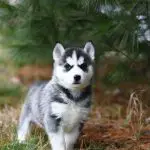Pomeranian dogs, big dogs in little bodies
Pomeranians are beautiful works of art, but are far more delicate than the average dog. Do not get a Pomeranian if you cannot take care of their coats every day. Pomeranian dogs are born entertainers and save their best for their people. Pomeranians can be just as trainable as other dogs, if you are patient and use positive reinforcement. Pomeranian dogs have some health problems, but they can be cured if caught early. Grooming their coats every day not only checks for health problems, but gives your Pomeranian needed attention.
Pomeranians do not look like real dogs – they look more like wind-up toys or a creature from Star Wars. They are smaller versions of the original Pomeranian sled dogs that lived hundreds of years ago in an area on the Baltic Sea called, not coincidently, Pomerania. It is thought they might have originally come from Lapland or Iceland, but nothing has been proven and besides the name Pomeranian has stuck.
Pomeranian dogs are more than cute faces. They are demanding in terms of attention and grooming, although undemanding in terms of feeding and exercise. Their tiny bodies sometimes mean a lot of difficulties in housebreaking, although some have been successfully trained to use a littler box like a cat or a rabbit. They are vocal, bold and will not suffer fools (or foolish little children) gladly. Despite their resilient and fearless nature, their bodies are actually quite fragile. They need to be treated with the same care and caution as you would a guinea pig or dwarf rabbit.
Pomeranian personalities can differ remarkably from Pomeranian to Pomeranian. Since there is such a demand for them over the past few decades, they have been breed more for quantity than quality. Sadly, this has lead to puppy farms supplying pet stores and Internet puppy sites with unhealthy, neurotic dogs. Never get a Pomeranian from a pet store or Internet site that sells puppies. Get one from a breeder or a Pomeranian rescue.
Pomeranians are standoffish around strangers and very protective of their people and homes. This has, on occasion, led to attacks. For example, this writer was walking her sixty-pound dog past a yard with a wooden fence. One of the boards suddenly banged dangerously, causing the both of us to jump. When I looked at our attacker, it was a smiling Pomeranian who looked very pleased with himself. They will bite when cornered by a person or another animal.
Pomeranians need regular check ups and vaccinations just like any other dogs. They need worming medication and rabies shots. Pomeranian dogs are also prone to some illnesses more than other breeds. These illnesses include eye infections, dislocated patella, skin problems, teeth problems and slipped stifle. Their skeletons are also more fragile than the average dog’s. A drop from your arms can fracture bones and do internal injuries. Daily grooming can help you not only untangle the coat, but spot potential problems before they become too serious.
Pomeranians can often grow bigger than their parents, but they can still be purebred Pomeranian dogs. Their ancestors were sled dogs of a Spitz-type that were about thirty pounds. Gradually, as the use of dog sleds dwindled, the Pomeranian became smaller for apartment dwelling. Now, they average about seven pounds. With regular care, attention and a sensible diet, they should live well into their teens and forever in your heart.


